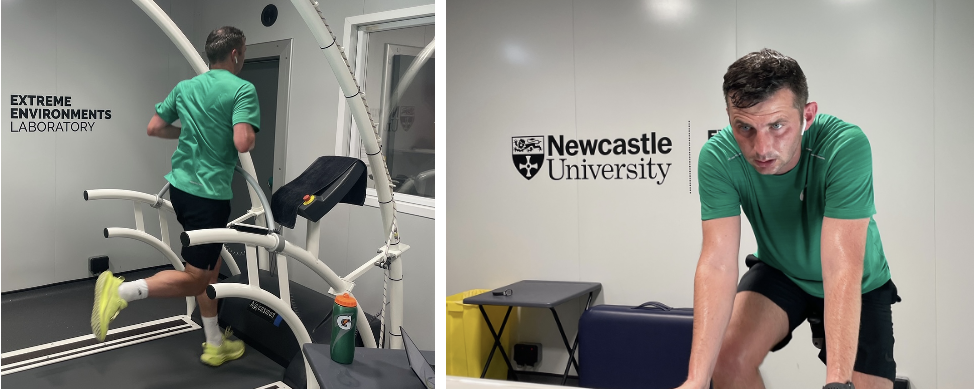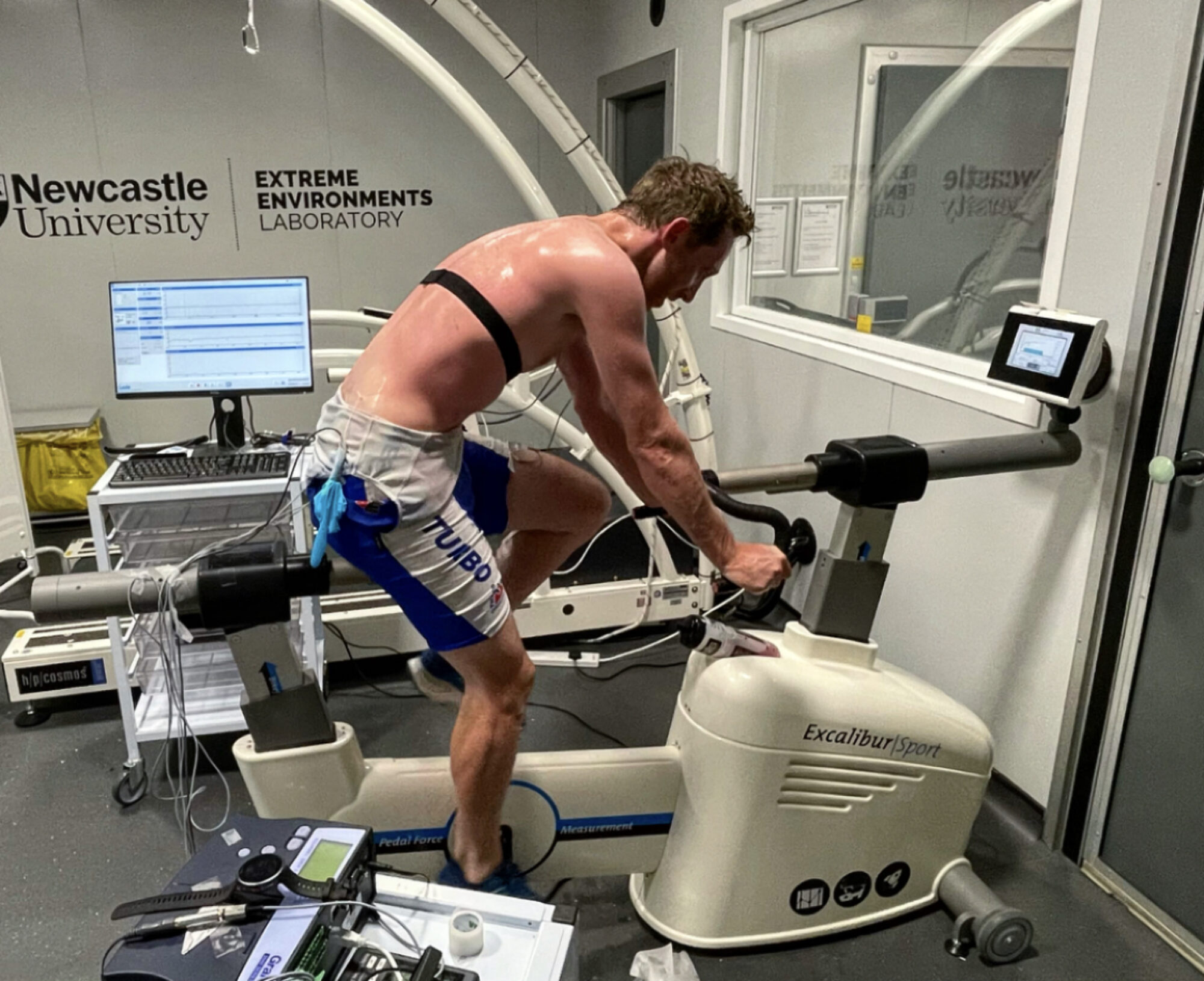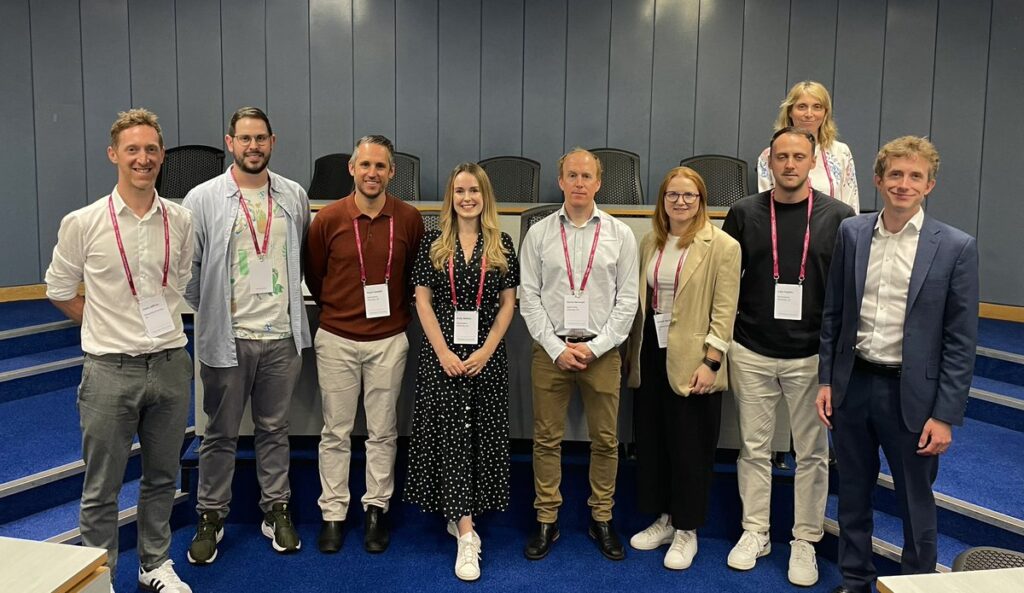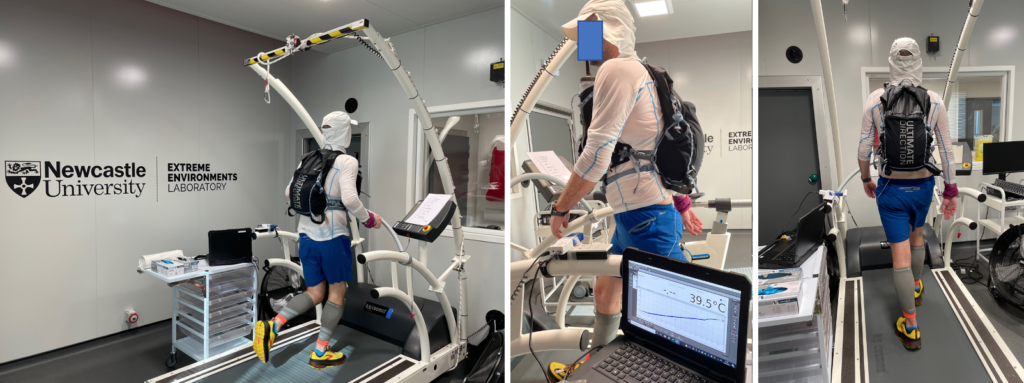Michael attended our Laboratory at Newcastle University over a 4 week period scheduling in 7 heat sessions. The block was in preparation for refereeing games at the forthcoming FIFA Club World Cup football tournament in USA.

Michael pictured training in the Environmental Chamber during a series of heat acclimation sessions for the upcoming Club World Cup.

English referee Michael Oliver in action during the FIFA Club World Cup 2025, round of 16 match between Flamengo and Bayer Munich, at the Hard Rock Stadium in Miami where temperatures were reported as highs of 33oC and humidity was 60%RH (Heat stress index = 40oC).
Read more about the heat acclimation protocol he used to prepare for the tournament………



